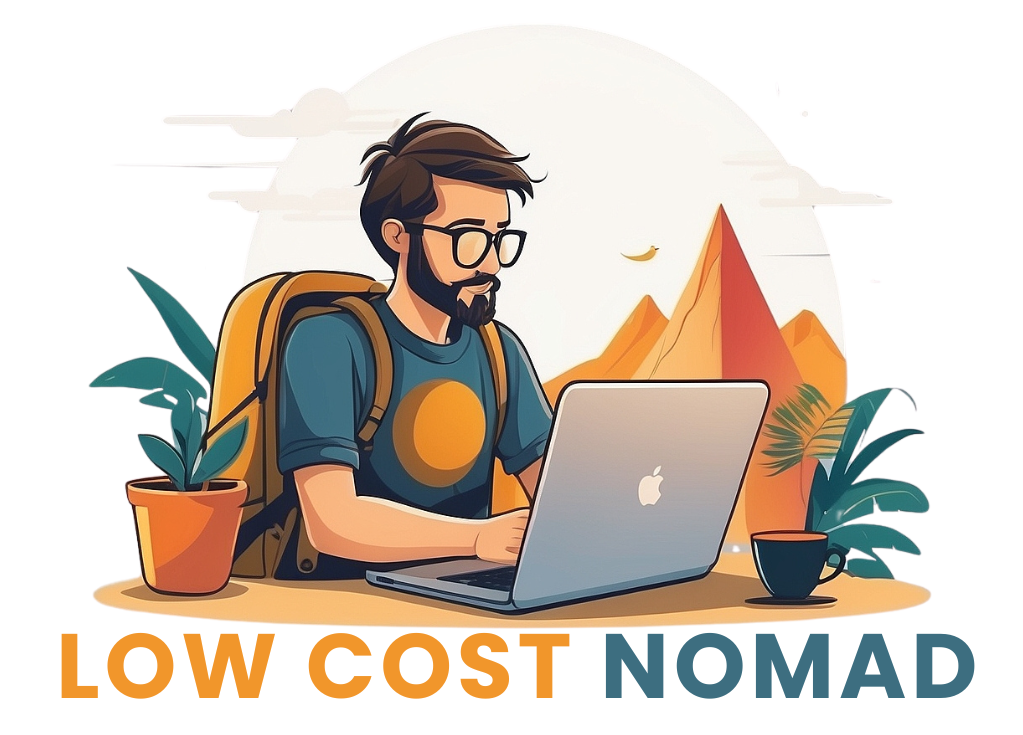South Korea Digital Nomad Visa: Unlock Your Remote Work Adventure in the Land of Morning Calm
South Korea, a land where ancient traditions meet cutting-edge technology, has long captured the imagination of people worldwide. From the vibrant streets of Seoul to the serene temples nestled in mountains, it offers a unique blend of experiences. For those who work remotely, the dream of living in this dynamic country while keeping their international job is now becoming a reality thanks to the introduction of the South Korea Digital Nomad Visa. This new visa pathway is opening doors for skilled professionals who earn their living online and wish to immerse themselves in Korean culture for an extended period.
In a world where working from anywhere is increasingly common, South Korea has joined the list of countries welcoming remote workers. This isn’t just about visiting for a short vacation; the South Korea Digital Nomad Visa is designed for a much longer, more involved stay. It allows individuals to truly live in Korea, experience its seasons, understand its customs, and become temporary members of the community, all while maintaining their career that is based outside of the country.
This article will guide you through everything you need to know about the South Korea Digital Nomad Visa. We’ll explore what it is, who is eligible, the steps involved in applying, the documents you’ll need, and what life might be like once you’re there. We’ll also touch on the benefits and potential challenges of this exciting opportunity. So, if you’ve ever dreamed of working remotely from the heart of East Asia, keep reading to see if the South Korea Digital Nomad Visa could be your ticket.
What Exactly is the South Korea Digital Nomad Visa?
The South Korea Digital Nomad Visa, sometimes referred to as the ‘Workation’ visa because it combines working remotely with taking a long-term “vacation” in the country, is a specific type of visa designed for foreigners who work remotely for companies or clients based outside of South Korea. It is not a work visa in the traditional sense, where you get a job with a Korean company and receive a salary from them. Instead, it acknowledges the growing trend of remote work and allows individuals with stable international income to reside legally in the country for a longer duration than a standard tourist visa.
The main goal of this visa is to attract talented individuals who contribute to the global economy while exploring and potentially spending locally in South Korea. It recognizes that digital nomads are a distinct category of traveler and resident, contributing to the local economy through their spending on housing, food, transportation, and leisure, without taking jobs away from Korean citizens.
Think of the South Korea Digital Nomad Visa as a long-term pass that gives you permission to live in South Korea for an extended period (up to two years) while continuing to work for your non-Korean employer or clients. It provides a stable legal status, which is essential for anyone planning to stay longer than a few months. This is a big difference from trying to piece together longer stays using short-term visas or visa runs, which is often against immigration rules.
This new visa type shows that South Korea is adapting to the modern global workforce and is eager to welcome individuals who can thrive in a remote work environment and contribute to the country’s dynamic atmosphere. It’s an exciting development for the digital nomad community worldwide.
Who Can Apply for the South Korea Digital Nomad Visa? Key Eligibility Factors
Not everyone who works remotely will qualify for the South Korea Digital Nomad Visa. There are specific criteria you must meet that are put in place to ensure applicants are genuinely remote workers with sufficient financial means and a clean background. Think of these as the main requirements the Korean government looks for:
- Proof of Remote Employment: This is the foundation of the visa. You must be currently working for a company, organization, or have a portfolio of clients located outside of South Korea. You cannot be working for a Korean company or actively looking for a job within Korea while holding this visa. You will need to provide evidence, such as employment contracts, letters from your employer stating your remote status, or client agreements if you are a freelancer or run your own international business. The key is that your source of income must originate from outside of South Korea.
- Minimum Income Level: This is one of the most important requirements and can be a significant hurdle for some. Applicants must demonstrate a substantial annual income. The specific amount is usually set at a relatively high level to ensure applicants are financially stable and can support themselves without needing local employment. While exact figures can vary or be updated, commonly cited income thresholds for the South Korea Digital Nomad Visa are around 80 million Korean Won (KRW) per year. At typical exchange rates (which can fluctuate), this is roughly equivalent to around $60,000 USD annually. You’ll need solid documentation like bank statements covering the past year, tax returns, or consistent salary slips proving you have met this income level.
- Relevant Work Experience: Some versions or interpretations of digital nomad visas, including South Korea’s, may require proof of professional experience in your field. This might be a requirement to show you are an established professional with a stable career, rather than someone just starting out. While not always a strict number of years, demonstrating a history in your line of work is beneficial.
- Clean Criminal Record: You must provide documentation proving you have no significant criminal history in your home country or any country you’ve resided in long-term. This is a standard requirement for most long-term visas worldwide to ensure public safety.
- Health Insurance: You need to show proof of private health insurance that will cover a certain amount of medical expenses while you are residing in South Korea. This is usually a high coverage amount to ensure you won’t become a burden on the local healthcare system in case of illness or accident. A typical requirement might be insurance that covers at least 100 million KRW (around $75,000 USD) for hospitalization and treatment. You’ll need to provide policy details clearly showing this coverage.
- Age Requirement: Generally, applicants for the South Korea Digital Nomad Visa must be 19 years of age or older.
- Financial Stability Proof (Beyond Income): In addition to income proof, you might also be asked to show proof of sufficient funds in your bank account to demonstrate that you have savings to support yourself, especially during the initial period of your stay.
Meeting these requirements is the first step in determining if the South Korea Digital Nomad Visa is a possibility for you. It’s clear that this visa is aimed at established professionals with a solid, high-level income stream from outside of Korea.
Gathering Your Documents: What You Need to Apply
Once you know you meet the basic eligibility criteria for the South Korea Digital Nomad Visa, preparing the right documents is crucial. The application process requires careful attention to detail, as missing or incorrect documents can cause delays or even lead to rejection. This is often the most time-consuming part of the process.
Here is a list of common documents you will likely need when applying for the South Korea Digital Nomad Visa. Remember that this list is based on typical requirements for such visas and information available, but it’s always best to check the official website of the specific Korean embassy or consulate where you plan to apply, as requirements can sometimes have slight variations or additional requests:
- Your Passport: Make sure your passport is valid for at least six months beyond your intended stay and has enough blank pages for the visa stamp.
- Completed Visa Application Form: You will need to download and accurately fill out the specific visa application form for the South Korea Digital Nomad Visa or the relevant long-term stay category.
- Passport-Sized Photos: Usually, recent standard passport photos are required. Check the specific size and background requirements from the embassy.
- Proof of Remote Employment: As mentioned in the eligibility section, this is critical. Provide official letters from your employer on company letterhead stating your position, that you work remotely, and where the company is located (outside Korea). If you are freelance or self-employed, provide recent contracts with international clients, registration documents for your business if applicable, and a statement explaining your work.
- Proof of Income: This is needed to meet the minimum annual income requirement. This can include bank statements for the past 12 months clearly showing income deposits, tax returns from the previous year showing your total income, or a combination of pay slips and bank statements. The documentation must clearly demonstrate that you meet the required income threshold over the specified period (usually the past year).
- Proof of Health Insurance Coverage: You need to provide documentation from your insurance provider showing that you have health insurance that is valid in South Korea and meets the minimum coverage requirements (e.g., 100 million KRW for medical treatment). The policy document should clearly state the coverage amounts and validity period.
- Criminal Background Check Certificate(s): You will likely need to provide official criminal background check certificates from your home country and any other country where you have lived for a significant period (e.g., typically 6-12 months or more) in recent years. These documents often need to be issued recently (e.g., within the last 3-6 months) and may need to be apostilled or legalized.
- Proof of Accommodation (Sometimes Requested): While not always a strict requirement upfront, sometimes you might be asked to show proof of intended accommodation, such as a hotel booking for your initial arrival or a rental agreement if you have already arranged long-term housing.
- Proof of Relationship for Accompanying Family Members: If you plan to bring your spouse or minor children, you will need to provide documents like a marriage certificate (for spouse) and birth certificates (for children). These documents often need to be official copies and potentially translated and apostilled/legalized.
- Copy of Previous Visas/Travel History (Optional but helpful): Providing copies of previous visas or stamps in your passport showing past travel can sometimes be helpful.
Organizing these documents meticulously is key. Ensure all documents are in English or Korean, or accompanied by certified translations. Check the embassy’s website for specific requirements regarding notarization, apostille, or legalization of certain documents.
Applying for the South Korea Digital Nomad Visa: Step-by-Step
The application process for the South Korea Digital Nomad Visa typically happens while you are outside of South Korea. You cannot usually apply for this visa while already inside the country on a different status, like a tourist visa. Here’s a general idea of the steps involved:
- Check Eligibility Thoroughly: Before you start gathering documents or making plans, go back over the eligibility requirements (especially income, employment location, and health insurance) to make absolutely certain you qualify for the South Korea Digital Nomad Visa.
- Gather All Required Documents: This is the most time-consuming step. Refer to the list above and the specific requirements from the Korean embassy or consulate where you will apply. Collect everything, ensuring documents are current, correct, and translated/legalized as necessary. Start this well in advance.
- Contact the Nearest Korean Embassy or Consulate: Find the Korean embassy or consulate that serves your country of residence. Visit their official website for the most up-to-date information on the South Korea Digital Nomad Visa application process, required documents, opening hours, and whether you need to make an appointment.
- Schedule an Appointment: Most embassies require you to schedule an appointment to submit your visa application and documents. Do this as early as possible, as appointment slots can fill up quickly.
- Submit Your Application: Attend your scheduled appointment at the embassy/consulate. You will submit your completed application form, passport, photos, and all supporting documents. Be prepared to answer questions about your application and intentions.
- Pay the Visa Fee: There will be a fee for the visa application. The amount varies depending on your nationality and the current regulations. Be prepared to pay this fee at the time of application.
- Attend an Interview (Possibly): Depending on the embassy and your individual case, you may be required to attend a brief interview. This is a chance for the consular officer to ask clarifying questions about your remote work, income, and plans in South Korea.
- Wait for Processing: After submitting your application, it will be processed. The processing time for a long-term visa like the South Korea Digital Nomad Visa can vary. It might take several weeks, sometimes longer depending on the volume of applications and the complexity of your case. Be patient during this stage.
- Receive Your Passport and Visa: If your application is approved, you will be notified to pick up your passport with the visa stamped inside, or it may be mailed back to you. The visa will show the type (e.g., ‘Workation’ or a specific long-term category like F-1-D, which is sometimes used for this visa) and the validity period.
- Plan Your Travel: Once you have the visa, you can make your final travel arrangements to South Korea within the visa’s entry validity period.
Being thorough, organized, and patient are key to a smooth application process for the South Korea Digital Nomad Visa. Starting early is highly recommended.
The Perks of Having the South Korea Digital Nomad Visa
So, why go through the effort to get the South Korea Digital Nomad Visa instead of just visiting on a tourist visa? This specific visa offers significant advantages for long-term remote workers who want to make South Korea their temporary base. It’s about more than just being able to enter the country; it’s about having a secure, legal status that opens up new possibilities.
Here are some of the major benefits of holding the South Korea Digital Nomad Visa:
- Extended Stay: The most obvious and significant benefit is the ability to reside in South Korea for a much longer period than traditional tourist visas allow. The South Korea Digital Nomad Visa typically grants an initial stay of up to one year, with the possibility of extending it for another year, allowing for a total stay of up to two years. Standard tourist visas for most nationalities only permit stays of 90 days or less. This extended period allows for true cultural immersion, ample time to explore different regions, and a much less rushed experience of living in Korea.
- Bring Your Family: A major advantage is that holders of the South Korea Digital Nomad Visa can usually bring their immediate family members with them, specifically their spouse and minor children (typically under 18 or 19). This is a huge benefit for digital nomads who want to share their experience abroad with their loved ones. Family members will need to apply for their own dependent visas (often tied to the primary applicant’s visa).
- Legal and Stable Status: Having the digital nomad visa means you are residing in South Korea legally as a long-term resident (though not a permanent one). This provides peace of mind and stability. It contrasts sharply with trying to stay long-term through irregular means, which is illegal and risky. A legal status simplifies daily life and interactions.
- Travel In and Out: With a long-term visa like the South Korea Digital Nomad Visa, you can travel in and out of South Korea multiple times during your visa’s validity period without needing to reapply for entry each time. This is convenient if you need to travel for work, visit home, or explore neighboring countries.
- Focus on Remote Work: The visa is specifically designed for remote work, acknowledging your lifestyle. This means your status in the country is clear and aligned with how you earn your living, avoiding any ambiguity or potential issues related to working while on a tourist visa.
- Potential for Local Services Access: While the primary purpose is remote work, having a long-term resident status can potentially facilitate access to certain local services or conveniences that might be difficult to access on a short-term visa, although this can vary and may not include things like the full national health insurance scheme initially.
- Deeper Cultural Immersion: Living in a country for up to two years allows you to move beyond the surface-level tourist experience. You can learn the language, participate in local events, build relationships, and truly understand the nuances of Korean culture.
These benefits collectively make the South Korea Digital Nomad Visa a far superior and more practical option for anyone serious about living and working from South Korea for more than just a short visit.
Things to Consider Before Applying: Potential Challenges
While the prospect of living as a digital nomad in South Korea on the South Korea Digital Nomad Visa is incredibly exciting, it’s important to be aware of potential challenges and factors to consider before you commit to the application process and the move. Being prepared for these can help manage expectations and make the transition smoother.
Here are some things to think about:
- High Income Requirement: As highlighted earlier, the minimum income threshold for the South Korea Digital Nomad Visa is quite high compared to digital nomad visas offered by some other countries. While intended to ensure financial stability, this requirement might be a significant barrier for many remote workers whose income falls below the approximately $60,000 USD (80 million KRW) mark. You need to be certain you can comfortably meet and prove this requirement.
- Cost of Living: South Korea, especially major cities like Seoul, is known for having a high cost of living. Housing can be particularly expensive, whether you’re looking to rent an apartment (often requiring significant key money deposits – jeonse or large deposits) or stay in serviced apartments. Daily expenses, while potentially manageable outside of prime locations, can add up quickly. You need to have a realistic budget based on Korean costs, not just your remote income.
- Strict Documentation and Bureaucracy: Korean immigration and administrative processes can be quite strict and require precise documentation. Ensuring everything is exactly as required by the embassy or immigration office can be time-consuming and sometimes confusing. You need to be prepared to be meticulous and potentially patient with the bureaucracy.
- No Local Employment Allowed: This is a critical point. The South Korea Digital Nomad Visa does *not* allow you to take on any form of employment with Korean companies or individuals within South Korea. Your income must continue to come solely from sources outside the country. You cannot use this visa to look for a job in Korea or transition into local employment.
- Language Barrier: While English is increasingly spoken, especially among younger generations and in tourist areas of major cities, Korean is the official language. Outside of Seoul or Busan, or in daily interactions like dealing with landlords, banks, or local shops, a lack of Korean language skills can be a significant barrier. While translation apps are helpful, learning some basic Korean phrases will greatly enhance your experience and independence.
- Cultural Differences and Adjustment: Moving to a new country involves adjusting to cultural differences, social norms, and daily life routines. While many people find Korean culture fascinating and welcoming, there can be challenges in adapting to everything from social etiquette and communication styles to food and public transportation norms.
- Finding Suitable Accommodation: While short-term rentals are available, finding long-term housing in Korea, especially if you’re new to the system (like jeonse or monthly rent with high deposits), can be complex.
Weighing these potential challenges against the exciting benefits will help you make an informed decision about whether the South Korea Digital Nomad Visa is the right path for you and if you are prepared for life in Korea.
Life as a Digital Nomad: What to Expect in South Korea
Imagine setting up your laptop in a cozy, technologically advanced cafe in Gangnam, catching up on emails with lightning-fast Wi-Fi, then stepping out into the bustling streets for some delicious street food before exploring ancient palaces or hiking in beautiful national parks after work. This is the kind of dynamic and varied life that awaits those living in South Korea on the South Korea Digital Nomad Visa.
South Korea offers an incredible environment for remote workers who value connectivity, safety, efficiency, and culture:
- World-Class Internet Infrastructure: South Korea is legendary for its internet speed and reliability. Whether you’re in a major city or a small town, finding strong, fast Wi-Fi is usually easy. This is perhaps the single most important factor for many digital nomads, and Korea excels at it.
- Efficient Public Transport: Getting around is incredibly convenient, especially in cities. Seoul boasts one of the best subway systems in the world – clean, efficient, and covering vast distances. Buses are also reliable and widespread. Using public transport is often the easiest and most affordable way to navigate.
- Vibrant Cities and Beautiful Nature: From the non-stop energy of Seoul with its K-Pop, incredible shopping districts (like Myeongdong or Hongdae), and diverse food scenes, to the laid-back coastal beauty of Busan, the historic charm of Gyeongju, or the unique volcanic landscapes of Jeju Island, there’s a place for every taste. Despite being densely populated, South Korea also has beautiful mountains and national parks easily accessible from cities, offering a great escape for nature lovers.
- Rich Culture and History: Living in South Korea means being immersed in thousands of years of history and a fascinating modern culture. You can visit ancient palaces, explore traditional villages (hanok villages), learn about Korean art and philosophy, enjoy world-famous K-Dramas and K-Pop, and experience unique festivals and traditions.
- Incredible Food Scene: Korean cuisine is diverse, delicious, and available everywhere, from fine dining restaurants to humble street food stalls. Exploring local markets and trying regional specialties is a major part of the experience. Eating out can be relatively affordable, especially when enjoying classic dishes like Kimchi Jjigae, Bibimbap, or Korean BBQ.
- Safety and Cleanliness: South Korea is generally considered a very safe country with low crime rates. Public spaces are often clean and well-maintained. This contributes to a comfortable and secure living environment.
- Growing Digital Nomad Community: As South Korea becomes more accessible with the digital nomad visa, the community of international remote workers is growing, particularly in cities like Seoul. This offers opportunities to connect with like-minded individuals, share experiences, and find social support.
While adjusting to the language and some cultural differences requires effort, the rewards of living in such a dynamic and well-connected country are immense for a digital nomad. You get the chance to truly integrate into a unique society while maintaining your global career.
How Does South Korea’s Visa Compare?
Many countries around the world have launched their own digital nomad visas or similar long-stay options for remote workers. The South Korea Digital Nomad Visa stands out in a few key ways when compared to some of these other options.
On the plus side, it offers a potentially longer stay than many others – up to two years with the extension, whereas many digital nomad visas initially grant only one year. It also clearly allows bringing dependent family members (spouse and minor children), which is not always explicitly included or as straightforward in other countries’ programs.
However, the income requirement for the South Korea Digital Nomad Visa is definitely on the higher end. Many European digital nomad visas, for example, have lower income thresholds (though still requiring proof of sufficient funds). The strict documentation requirements and the process through overseas embassies might also be perceived as more challenging compared to some simpler online application systems offered elsewhere.
When comparing the South Korea Digital Nomad Visa to options in other parts of the world, consider what is most important to you: is it the duration of stay, the income requirement, the ease of application, the ability to bring family, or the specific destination itself? South Korea’s visa is well-suited for higher-earning remote professionals who are particularly drawn to the unique culture, technology, and lifestyle South Korea offers for an extended period.
Tips for a Smooth Application Process
Applying for the South Korea Digital Nomad Visa requires diligence and preparation. To maximize your chances of a smooth application process, keep the following tips in mind:
- Start Early: Gathering all the required documents, especially things like criminal background checks and proof of income spanning 12 months, takes time. Add to that the time needed for potential translations, notarizations, or apostilles, and scheduling embassy appointments. Don’t wait until the last minute. Begin preparing months before your desired move date.
- Be Meticulous with Documents: This cannot be stressed enough. Double-check every document against the official requirements listed by the specific Korean embassy or consulate where you are applying. Ensure they are current, correctly formatted, and that any necessary translations or legalizations (like apostilles) are done correctly. Missing or incorrect paperwork is the most common reason for delays or rejection.
- Verify Income Proof Carefully: Make absolutely sure your income documentation clearly shows that you meet or exceed the minimum annual income threshold for the past year. Use official documents like tax returns or detailed bank statements that show consistent income flow. If you are freelance, organize your contracts and invoices to support your bank statements.
- Confirm Health Insurance Details: Review your health insurance policy carefully to ensure it explicitly meets the minimum coverage amount required by the South Korea Digital Nomad Visa (e.g., 100 million KRW). Get a letter or document from your insurer confirming this coverage for travel to South Korea if possible.
- Use the Specific Embassy’s Website as Your Primary Source: While general guides are helpful, the official website of the Korean embassy or consulate in your country of residence is the definitive source for their specific requirements, forms, and procedures. Check it regularly for updates.
- Prepare for the Interview: If an interview is required, be prepared to clearly and concisely explain your remote work, how you meet the income requirements, who your employer/clients are (outside Korea), and your reasons for wanting to live in South Korea. Be honest and confident.
- Consider Professional Help (If Needed): If you find the process overwhelming or have a complex situation, you might consider consulting with an immigration consultant or lawyer specializing in Korean visas. While this adds cost, their expertise can be invaluable.
- Organize Your Application: Present your documents in a clear, organized manner as requested by the embassy (e.g., in a specific order). This makes it easier for the consular officer to review your application.
By following these tips and approaching the process with patience and attention to detail, you can significantly improve your experience when applying for the South Korea Digital Nomad Visa.
Conclusion: Is the South Korea Digital Nomad Visa Right for You?
The introduction of the South Korea Digital Nomad Visa represents an exciting and significant opportunity for remote workers around the globe who dream of experiencing life in one of Asia’s most dynamic and technologically advanced countries. It offers a legitimate and long-term pathway to live in South Korea while continuing to earn an international income, moving beyond the limitations of short-term tourist stays.
This visa is particularly well-suited for established remote professionals who meet the specific eligibility criteria, especially the relatively high minimum income threshold. For those who do qualify, the benefits – including the potential for a two-year stay, the ability to bring family, and the security of legal resident status – are substantial.
Life as a digital nomad in South Korea offers a unique blend of hyper-modernity, rich culture, incredible food, and efficient infrastructure. While challenges like the cost of living, language barriers, and navigating bureaucracy exist, they are often outweighed by the opportunity to immerse oneself in Korean society, explore its diverse landscapes, and connect with a growing international community.
If you meet the requirements, are prepared for the application process, and are excited by the prospect of living and working remotely from the Land of Morning Calm, the South Korea Digital Nomad Visa is definitely worth exploring further. Do your research, gather your documents diligently, and take the leap. South Korea could soon be the vibrant backdrop to your remote work adventure!




